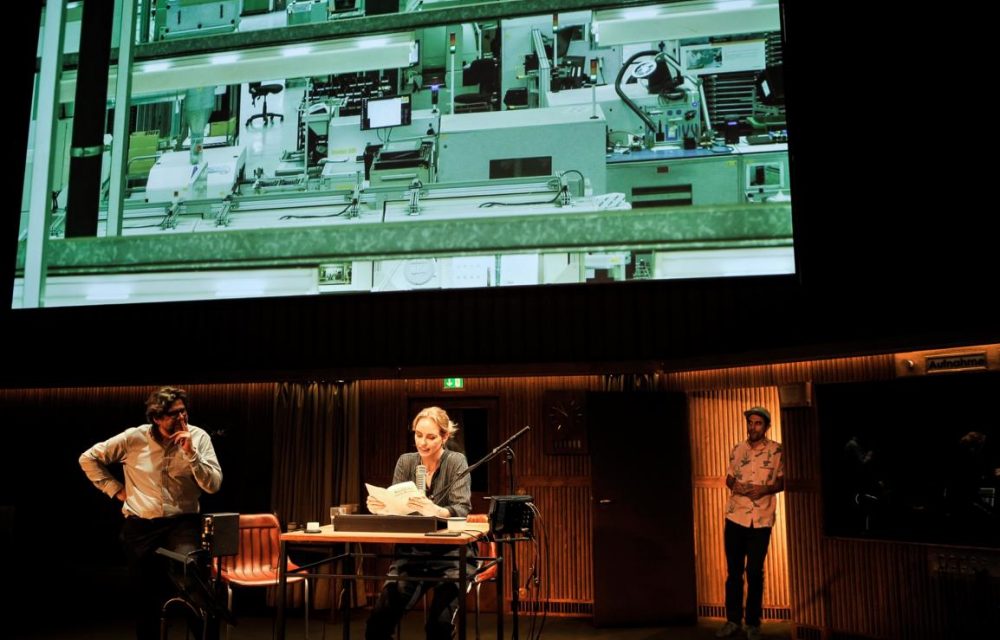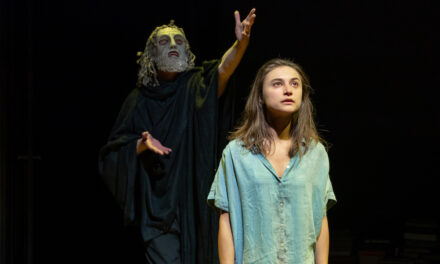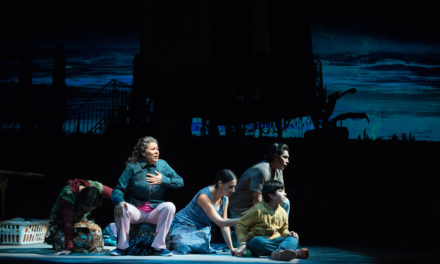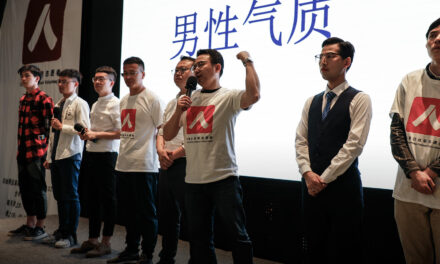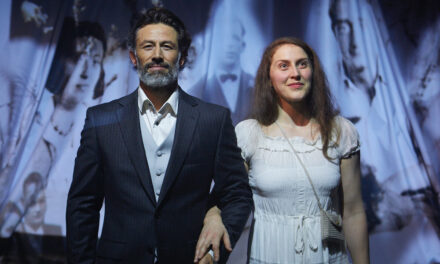Best known in the US for the stunning exemplars of the German Regietheater tradition he regularly brings to New York, Thomas Ostermeier is a master of making classic texts speak to urgent contemporary social and political questions. In his 2015 version of Shakespeare’s Richard III the deformed dictator is depicted as a crowd-pleasing, Trump-like raging id, a sick leader for a sick society. In his 2011 staging of Strindberg’s Miss Julie the dangerously unequal relationship between a wealthy woman and her ambitious servant becomes an elastic metaphor for the perils of growing income inequality in the twenty-first century. His 2012 Enemy Of The People introduces novel features into Ibsen’s famous town hall scene, interpolating text from contemporary writers opposing globalization and neoliberalism and opening the dramatic moment up into a frame-breaking debate on the state of contemporary capitalism, with spectators encouraged to vocally respond to the play’s provocations and to square off against the performers and each other.
Returning To Reims, a Berlin Schaubühne production now playing at St. Ann’s Warehouse, is clearly the product of the same searching and critical mind, even if it does entirely without the spectacular theatrical gestures that have been hallmarks of Ostermeier’s work in the past. Returning To Reims takes place in a recording studio, where voiceover actress Katy (Nina Hoss) has been engaged to do the narration for a film based on French philosopher Didier Eribon’s memoir of the same title. Ostermeier’s play consists almost entirely of Katy reading from the text, a fascinating book that brings sociological inquiry and critical theory to bear on the author’s fraught relationship with his origins.
A progressive, homosexual Parisian intellectual, Eribon has been estranged from his provincial working-class family for decades when he receives word that his father, a lifelong factory menial, has died. In his book he describes visiting his mother and reckoning with the disdain he has long felt for the small-minded, homophobic workers he grew up with. He is disturbed by the political transformation of these rather desperately poor people, once proud communists who are increasingly turning to Marine Le Pen’s nationalist, xenophobic brand of populism. Eribon reflects on his personal trajectory, on how coming out of the closet as a gay man coincided with shutting himself up in a “class closet.” He recognizes that he has gone to great lengths to distance himself from the actual working classes even while romanticizing the proletariat in the fashionable way of many leftist intellectuals, and he is moved to consider with new compassion the root causes of growing populist disaffection in Europe and beyond.
In Ostermeier’s production, text from Eribon’s book is being juxtaposed with footage of the author in Reims, partisan demonstrations, and other visual material illustrating the connections between the personal and the political. We see the images projected on a screen behind Katy as she narrates. The project is the brainchild of Paul (Bush Moukarzel), a pretentious and patronizing, if well-intentioned, filmmaker who mainly sits in the sound booth with audio engineer Toni (Ali Gadema). Ostermeier is extremely shrewd and efficient about reflecting the themes of his central text in the minimally-sketched relationships between the three people in the studio. Apparently like-minded as they are, domination and exploitation subtly color the ways in which they interact with each other. Paul tables a conversation about an edit Katy suggests because “It’s just ridiculous,” he says, “an actress thinking she knows better than me how to make a film.” When Katy and Paul have run out the clock arguing about the “tendencies of monopolization,” Toni interrupts: “Guys. Can we please crack on? It’s nice with your intellectual discussion. But time is money, man. Do you think I have a fucking magic Marxist money tree? I’ve got a kid to feed.”
When Katy has finished recording her prepared text she lingers, unsatisfied. She reveals to Paul that the film’s subject matter hits close to home. Her father was also a disillusioned communist of humble origins, she says, but instead of veering to the right like père Eribon, he became a founding member of the German Green Party and went on to travel the world as a Member of Parliament, supporting human rights activists and helping to launch practical projects to both lift people out of poverty and help them become responsible stewards of the environment. This unseen character, so full of hope and energy, is based on Hoss’s real father, Willi Hoss. The actress (Katy) pulls out her phone to show Paul pictures of the actress (Nina) with her father helping to bring clean drinking water to people living in the Amazon. Paul cynically gets the cameras rolling to record these stories, hoping perhaps to have found the perfect ending to his film. Toni reclines indifferently on the couch, scrolling through his phone, waiting for his client to finish up and pay.
But Katy’s quiet transformation into Nina has shifted the equation of reality in the performance in a subtle and wonderful Brechtian move. We began by experiencing a text about real people framed by the artificial apparatus of the theater, the drama. We learn to read the text through that apparatus, by investing in the characters and the slight, if expressive, plot that functions as a delivery system. Katy/Nina then shows that reading to be insufficient by offering the counterexample of her father. By relating Returning To Reims back to a very particular reality, the production obliquely calls on all of us in the audience to consider our own places in the complex networks of domination that prop up global capitalism. Which legacies do we disavow in order to pursue ever more tantalizing freedoms? What is the value of the individual without the collective, and the collective without the individual? Whose humanity must be compromised in order for us to feel most uncompromisingly human?
Ostermeier leaves us with these and many other questions, and he makes them feel existential and immediate, not abstract. With actual political discourse in our own country suffering from such unprecedented erosion, a piece of political theater as eloquent and elegant as Returning To Reims is a great gift and a rare, welcome appeal to what is best in us.
Returning To Reims
Directed by Thomas Ostermeier
After Didier Eribon
St. Ann’s Warehouse
Brooklyn, New York
February 4-25, 2018
This post was written by the author in their personal capacity.The opinions expressed in this article are the author’s own and do not reflect the view of The Theatre Times, their staff or collaborators.
This post was written by Jessica Rizzo.
The views expressed here belong to the author and do not necessarily reflect our views and opinions.

